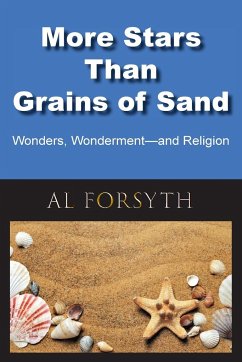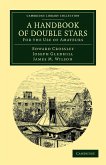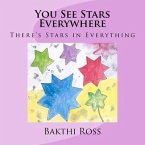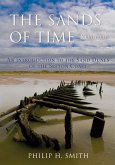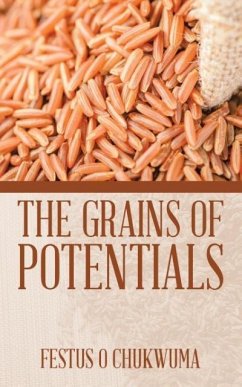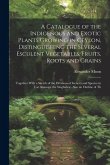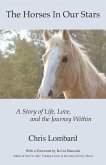Did you know that there are more stars in the universe than grains of sand on all the world's beaches? Did you know that there are more atoms in a single grain of sand than there are grains of sand and almost as many as the number of stars? Did you know that almost every one of our 37 trillion cells contains three feet of DNA, or enough in total that, if laid end to end, would form a DNA string stretching to Pluto? Did you know that there was no first Homo sapiens? Did you know that a grizzly bear can smell a carcass from 18 miles away? Did you know that the mantis shrimp can see a rainbow of colors unimaginable to us, with its 16 color receptors to our three? Did you know we humans have fewer genes in our cells than a water flea? In More Stars Than Grains of Sand: Wonders, Wonderment-and Religion, Al Forsyth presents a broad range of such surprising "wonders" of the natural and physical world, with color photos of many, to stretch our conception of the world and where humans stand in it. Are we in the middle of spectrums of size, abilities, and other traits, or are we at one extreme or the other? Because so many of the wonders stretch our understanding of the very large and very small, an introductory section of the book helps the reader understand very large and very small numbers, using familiar analogies. The book presents 52 groups of wonders, one for each week of the year. The author strongly urges reading the book slowly, letting the new knowledge presented percolate and deeply affect our thinking about ourselves and the world. As the subtitle of the book suggests, the author makes a strong argument that wonders can promote wonderment, and that wonderment embraces a sense of awe that is basic to religions. In fact, the case is made that appreciation of wonder and the resulting wonderment, combined with adherence to the Golden Rule, are sufficient dimensions of a religion, a new religion based in science that avoids many of the pitfalls of traditional religions. More Stars Than Grains of Sand will open your eyes, expand your mind and help you place yourself in the world - wonders leading to wonderment - and permit you to contemplate, if you like, a new religion based on science.

